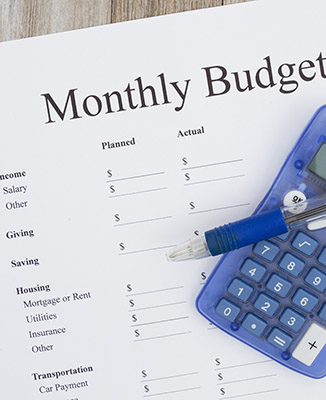
Managing rising living expenses as a resident and student
In face of a rising cost of living, balancing income and expenses can seem almost insurmountable. As the housing market continues to outpace expectations, as gas prices surge beyond $5.00 per gallon and as inflation impacts the cost of goods, staying afloat in a sea of increasing expenses and worsening debt becomes difficult especially when living on student or resident income. Unfortunately, there doesn’t appear to be an end in rising costs in sight. According to housing experts from Forbes.com, predictions are that the housing market will remain strong for a while. This upwards trend in housing costs is believed in part to attributed to a low housing supply and high demand. Homebuyers today are more financially secure and less likely default on their mortgages making a housing crash on par with 2008 unlikely.
What do we do and how do we adapt to a changing financial climate without becoming overwhelmed by growing expenses?
When it comes to planning for the unexpected and setting goals for financial stability, budgeting is tremendously important concept. It provides tools needed to know where your money is going and when you need to change to your spending. This is crucial especially as a larger percentage of our income will likely shift towards housing, increased cost of goods and rising gas prices. According studentaid.gov, creating a budget is straightforward and starts with determining your earning vs expenses and tracking these values over time. Understanding of your expenses and income, allows you the ability to set financial goals, adjust spending habits and tract progress. There are many resources and apps available to help with your budgeting needs, with some of the most common budgeting apps allowing for interconnectivity between financial accounts, tracking of spending and categorizing expenses so that seeing where your money goes is whole lot easier. According to a NerdWallet list of top 8 budgeting apps for 2022, MINT, Goodbudget, YNAB, EveryDollar, Pocketguard, Honeydue are some of the best options to help achieve your short-, medium- and long-term budgeting goals.
After organizing your budget, there are two main categories of expenses that you should be aware of which historically has had financial impact on students and residents according to The White Coat Investor. These areas are housing and transportation. Incidentally these two areas are rapidly increasing the cost of living today and into the near future based on some projections. Purchasing affordable housing and transportation with a budget in mind two of the pillars are two pillars of financial security. But in a rapidly shifting environment where once affordable housing is rapidly becoming unfordable and gas prices is limiting transportation making a non-strictive budget becomes more difficult without increasing your revenue stream to compensate increased cost.
What else can we do?

In terms of housing, one alluring concept which has been used historically competitive housing markets like New York has been living with a stranger(s). In a New York times article titled living with strangers, a glimpse into a potential solution addressing escalating housing cost is conveyed elegantly. Although living with strangers or roommates is not a novel concept, it appears to be one that may be gaining traction especially in competitive housing markets. Sharing a space with other individuals has been proven to reduce high housing costs by spreading that cost. With that said there are many potential pros and concerns associated with living with a stranger/roommate. According to an article by rent.com some of the biggest pros associated with living with other individuals includes spitting rental costs, sharing responsibilities and chores, relationship building, support. Alternatively, you are giving up privacy and opening yourself up to potential conflicts, missed rental payments, and stress. But if you able to find that perfect group of individuals, living with others may improve your mental that may improve mental health and sense of wellness.
Similarly with rising gas prices, ride sharing or carpooling may be a solution worth embarking. Sharing the rising cost of transportation with co-workers, other residents and medical students can significantly reduce the cost of transportation. This is especially true if you’re commuting with individuals who reside in the same residential community or are on route to a shared destination. In addition to the financial benefits provided by carpooling or riding sharing, there are other potential benefits as well. According to an article published by the UC Berkely and the University of Ottawa, carpooling can also reduce emissions and pollution, reduce roadway congestion, reduce parking constraints and potentially reduce stress.
By Dr. Marvin Dieujuste, Winter Haven (BayCare) FM (PGY-3 Resident)

